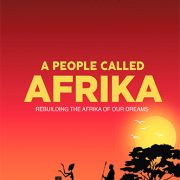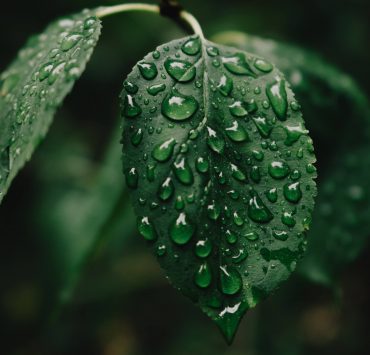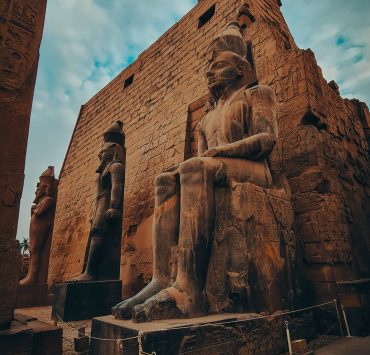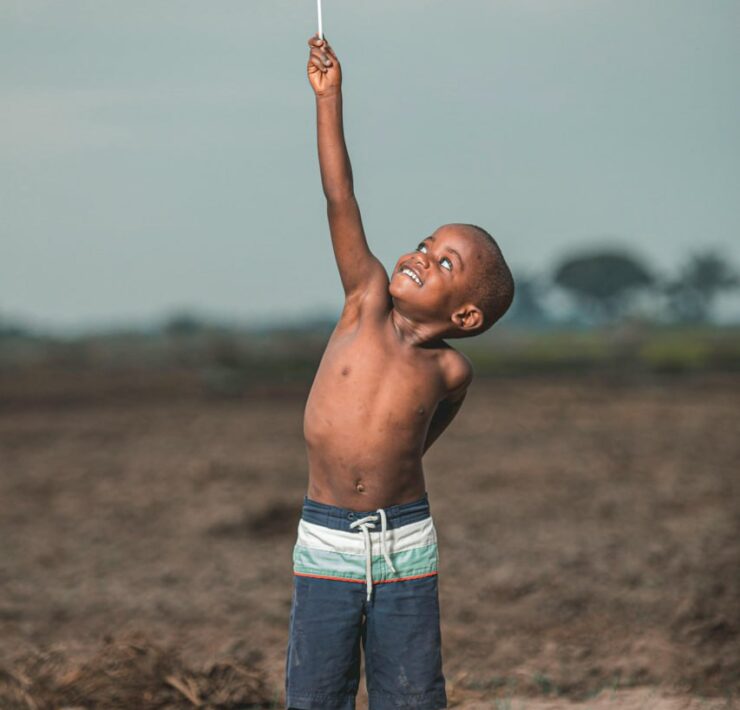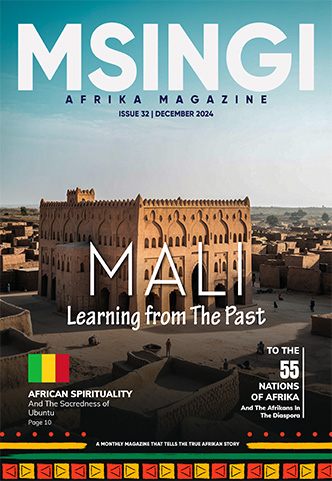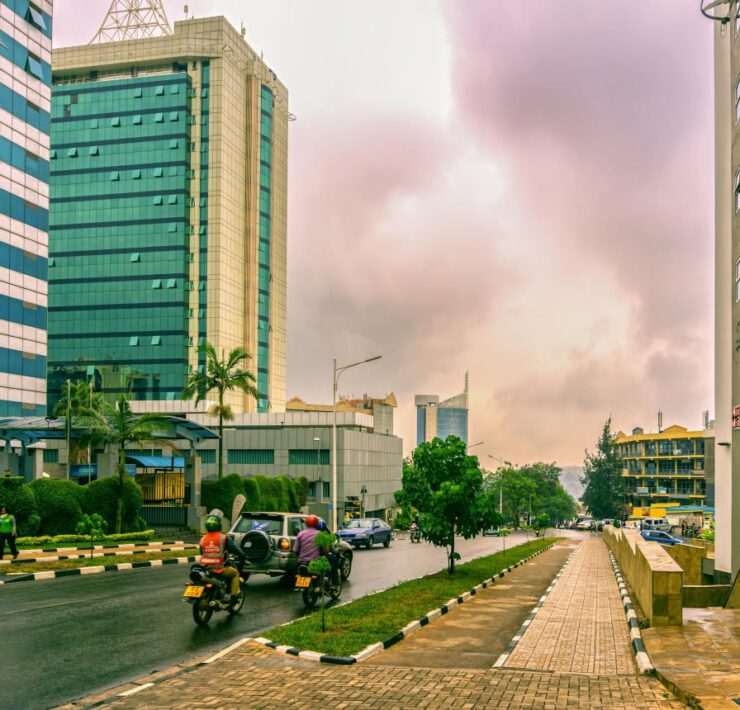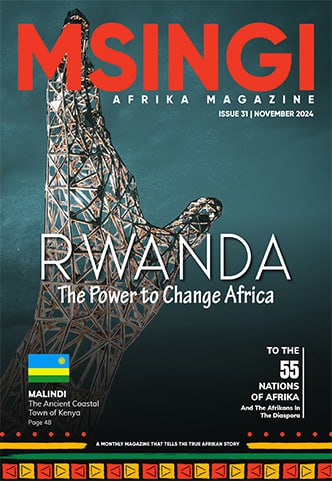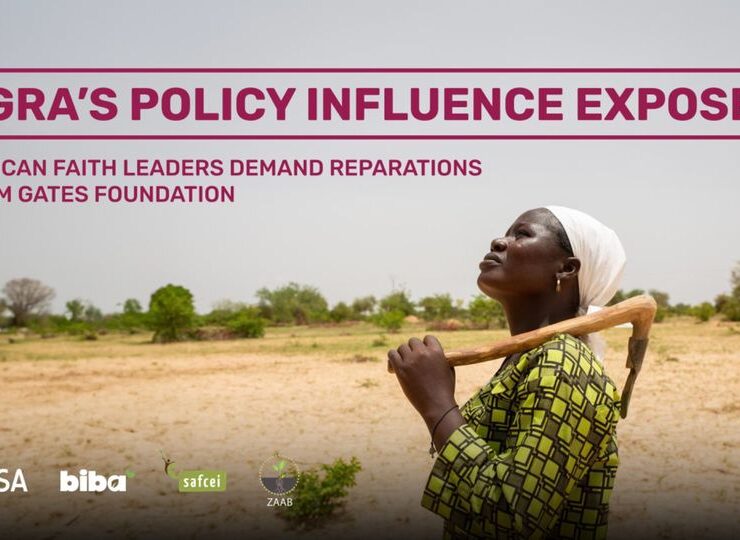Interview: Patrick Headley Kojo

Passionate about getting God's message concerning Afrika and the end…
Diaspora Investment Into Afrika
We speak to Patrick Headley Kojo, CEO and Founder of Kiyiira Limited. What is the meaning of Kiyiira?
Kiyiira is one of the words the locals (in Uganda) use for the river Nile, I have been told. And then I looked at the further aspect that it flows all the way through Afrika and I thought that would be a great name to identify what I want to achieve and the name of the company.
Patrick has gone through the various processes, explored different countries in East Afrika, and found a rhythm and a formula that works for himself. He is building a vision that is far bigger than the money. His ultimate aim is building up societies, communities and families and he is using the tools that are available to him, based on his training. He talks to us about Diaspora Investment in Afrika.
It is my pleasure to speak about my experience through my visits to Afrika. I have been traveling the continent for a long time and I have always been looking at how, given my knowledge and my background and my various skills being in IT, Broadcasting and also in Property Markets, how can I give back to my continent? It has not been without its challenges and it has not been without failed attempts, misunderstandings, some pleasant and some not so pleasant.
Just before Covid, one of the missions that I was developing was to attract investors from the west and partner them with small farmers or small investors or small projects that they can collaborate with. That was going fairly well. We actually got to the stage where we brought some people over, we were focusing on Uganda at the time, and then Covid came along and really put paid to that project. But being multifaceted, I was learning Kiswahili myself and the teacher that was teaching me expressed to me her views and her thoughts and I looked at what I could offer her and we started to develop the Kiswahili course, which we now launched.
Looking at the aspect of the Diasporans and the continental Afrikans there are some dynamics that need to be considered and there are some attitudes that need to be adjusted, on both sides. What I find is we in the west have been set a stereotypical image, it’s changing now but it’s still there. What I have found is when you do come to the continent, you have to come and be humble, because you may see the people living in a different condition than you would live in or putting up with something that you wouldn’t put up with. You have to respect their background and where they’re coming from and the limitation that has been placed on them by the system, which is still perpetuating from independence. As you know most of the countries are in the region of about 50-60 years independent, and some things have changed, and some countries are running to catch up, and that creates issues in itself. You will come as someone that’s lived in the western world, and you’re used to things just working and you have to respect where the people are coming from and not look down on them, but understand that they are a pool of talent that you can tap into because they will have knowledge of things that you will never ever be able to appreciate. That’s where I found myself in my visits to the continent and being a very open person, I have looked at how I can work with individuals and that’s brought me to this point.
One thing I have found in the years of coming here, there are many Diasporans who are seeking to reconnect with their identity, and as you know I have been working with Dr Tosu and he is very keen on that aspect of us reconnecting with identity in the Alkebulan principles and bringing them to the fore. I find that some will come with the mindset of the former, just to put it mildly, ‘we are coming to grab and take’. But on the flip side, there are those that will see you with your accent as a walking dollar and they will want to take advantage.
So, we have to appreciate that there are dynamics here, so the question is how do we create that bridge where people can recognize that yes, the transatlantic slave trade was horrific and it lasted for a long time, but that put a great deal of our people in a place where they didn’t belong, but they learnt to adapt and they have now gained knowledge and skills which maybe are not necessarily available here. You have to look at how can we do that knowledge transfer, how can we come and give and develop? One of the things I have said to myself, if I come to the continent, I am coming to give back to something, I am coming to develop something, I’m certainly not coming to take a job from a local person. I’m looking to help a local person find a job and find a path that they would not have had.
Moving forward, one of my biggest dreams is, and it’s not going to be in my lifetime, because I know that we are just passing the baton on to the next generation, is to really see a closer connection. I would like to see my people everywhere in the world identifying with each other through a common language because we all know we come from a common land. That is why I am so keen and working so hard to bring Swahili to the masses as well as the project we are working on now. That’s my dream and that’s my future. I really want to be able to say in my senior years that I have left something that is going to continue on, I’ve contributed, I’ve maybe started a spark and that’s why I am in the position I am in now. That’s why I am doing my trips back and forwards to the continent here and trying to connect with people and develop.
As I’ve mentioned there are going to be some failures, which I have had in the past, there are going to be some misunderstandings, but I just have to take that on the cheek and understand that these things will happen and not let that stop me from doing the next things regardless of where we are at.
Something really big that is standing out for me from what you’re saying is that your attitude is not about coming to grab for yourself, your attitude is about coming to build so that everyone can benefit. So, it’s not just the people who were born and grew up in Afrika or the Diaspora, but for every single person to find something. That says a lot because not many people are willing to just lay the foundation and then let someone else come and add to it, so how did you come to this position?
Although I’m not a rich man by any means, in all of my projects that I’ve worked on with the local people I have financed it 100%, because I have realized that although I am not rich, my western dollar or my western pound can go a long way. So why should I put that burden on someone? I know that once we get to a certain point, everybody will benefit and it will come back. That’s the way I recognize that I can give back.
Also being taken away from this land over 400 years ago and coming through my route from Jamaica to the UK here, to me it’s about reconnecting with family as well. I know that for me to say I’m going to be coming to anywhere in Afrika to relocate I know that the most important thing is not to come in isolation, you have to come with a family. So, you have to set the groundwork to be accepted in. Remember we look at each other separately so people have to see that you’re coming sincerely and they have to recognize that. There could be misunderstandings but as long as you are sincere you will overcome that.
I have been going back and forth for 30 years to Nigeria, Senegal, Gambia, all along the West Afrikan coast in the last 4 or 5 years coming more to the East, and I kind of found a connection with the East. You connect with people as you see them, and if you come openly, people see that and connect with you. That’s how I encourage every Diasporan to come, come openly, come without attitude come without looking down on someone or adopting the attitude of the former colonizer. Come ready to give and ready to accept that sometimes you will not be reciprocated the way you would expect because we’re all coming from different perspectives in terms of the challenges that we would face.
I would encourage everyone that’s got a dream to reconnect back to their roots, to their homeland because spiritually I believe that this is the only place that a black person in this world will be able to reach the maximum of their potential. Because you’re not just calling upon yourself, you’re calling upon your ancestors to inject into you the knowledge that is already inert within you so it’s like planting a seed and seeing it grow, that seed is already inside of you but it can only grow on soil that is fertile and that soil is on the continent.
If you don’t mind, could you tell us what areas are you investing in and why?
I have a background in property, IT, and as I mentioned, broadcasting. The project we were working on prior to Covid was bringing Diasporans from the US and the UK to Uganda, at the time, and partnering them with the Ugandan Investment Authority and everything was very well laid out by them. I was looking at the aspect that they could relocate and it was perfect because when you connect them it was like a personal thing. We bring you over there, we take you around and make you feel comfortable, and my vision was you are connecting with that family and so when you decide you want to leave the west and come over you are reconnecting with the family. That may be something we pick up again in the future once things are more stable.
I also looked at property investment in Uganda and a big project that was being built there. I have invested in that myself as a means of having a base where I can look at other areas. One thing I recognize is once you’re on the ground you’ll see things which you’ll never see unless you’re here on the ground looking around speaking to people seeing what there is. I introduced one of my daughters to an investment in Zanzibar, in property as well.
It’s looking at what skills I have, where I can apply my knowledge and how I can assist, but it’s always with the aim of creating that connection so that you don’t come and feel like you’re living in a barbed wired gated community and are afraid to go out. You’re comfortable within your environment and that’s very important because you don’t want to leave one oppressive state and come to another. To be yourself you have to feel free that you can reach your potential and if you can’t then that is a form of subtle oppression.
With your IT you’re also involved with language…
Yes, a very successful project that we have recently launched is called Kiswahili for Schools, very pleased with that. It has taken over 9 months to develop that project, along with Miss Wambui Kamau. We’re very proud of what we’ve done. We now have over 60 students on the course. It’s structured to go over six months, has a very well-structured school curriculum. We’re starting in Kenya and also looking to expand that into other countries.
We’ve got the commercial Kiswahili course because Kiswahili for Schools is a bit of a philanthropy project, it is our way of our giving back to the schools. We have the other aspect that we’re developing, Swahili for the masses so anyone can attend those and it is structured around the same idea, to help you speak with confidence over a period of time. If you go through the program as it’s been designed and the modules as it’s been structured, we are confident that at the end of those six months you will have enough Swahili to feel you can take a trip to East Afrika and move your way around. We’re excited about that and that course is available on another of our platforms as well.
Are you still willing to connect Diaspora investors to the Afrikan continent?
Absolutely. My focus now is on the East because I have made those strong connections here. I am working with another team that is focused on East and West Afrika, called World Views. We are literally working partners. They are in the process of looking to allow myself and the Swahili course to establish a more structured business in Kenya, so we’re hoping that pans out. They are focused on West Afrika and we will be doing some things through them and they will sort of be the lead and we will follow what they say, so we work with them.
My company has built their platforms for them, both their business platform and their travel platform. They run regular trips to Kenya and all over the world, but they are focusing a lot on Afrika. We see that in the future as being how we will be able to make inroads into West Afrika, as they have got those connections as well.
Any advice you would offer investors from the diaspora or people who are kind of thinking about coming to Afrika?
I have always said ‘feel the fear but do it anyway’. I learnt that a long time ago. When you’re going into a place and you really don’t know anyone and it might be a little intimidating at first and it’s a different environment… do your due diligence, connect with individuals that may have walked that path before and I mentioned World Views they are a good company to really give you all the key things that you need to look at. But just do it.
I wouldn’t be here if I focused just on my failures. Never let one failure or one bad business deal stop you because that will just put paid to greater achievements that’s waiting for you. I believe and I’ve always said it coming from a personal development background that sometimes you have to go through the failure to get to the success. I would say to anyone, just do it and that’s all that I can say.
Thank you very much Mr Kojo, it was great having you share your thoughts with us.
Note: You can watch the video interview below:
What's Your Reaction?
Passionate about getting God's message concerning Afrika and the end times to the world, in order to heal, restore and rebirth Afrika to her true purpose and destiny in God.








